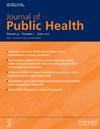Appealing to Americans’ altruism is not enough to nudge them to accept novel vaccines
IF 3.6
4区 医学
Q1 PUBLIC, ENVIRONMENTAL & OCCUPATIONAL HEALTH
引用次数: 0
Abstract
Background The role of altruism in the acceptance of novel preventive healthcare technologies like vaccines has not been thoroughly elucidated. Methods We 1:1 randomized n = 2004 Amazon Mechanical Turk (MTurk) participants residing in the USA into a control or treatment arm with vaccination decisions framed altruistically, to elicit their preferences for COVID-19 vaccination using web-based discrete choice experiments. We used conditional and mixed logit models to estimate the impact of framing decisions in terms of altruism on vaccination acceptance. Results Valid responses were provided by 1674 participants (control, n = 848; treatment, n = 826). Framing vaccination decisions altruistically had no significant effect on vaccination acceptance. Further, respondents’ degree of altruism had no association with vaccination acceptance. Limitations The MTurk sample may not be representative of the American population. We were unable to ascertain concordance between stated and revealed preferences. Conclusions and Implications Framing vaccination decisions in terms of altruism does not appear to significantly influence vaccination acceptance and may not be an effective nudging mechanism to increase the uptake of novel vaccines. Instead, a favorable vaccination profile appears to be the primary driver of uptake.美国人的利他主义不足以促使他们接受新型疫苗
背景 利他主义在接受疫苗等新型预防保健技术中的作用尚未得到彻底阐明。方法 我们以 1:1 的比例将 n = 2004 名居住在美国的亚马逊机械特克(MTurk)参与者随机分为对照组和治疗组,并以利他主义作为疫苗接种决策的框架,通过基于网络的离散选择实验来了解他们对 COVID-19 疫苗接种的偏好。我们使用条件和混合 Logit 模型来估算利他决策对疫苗接种接受度的影响。结果 1674 名参与者做出了有效回答(对照组,n = 848;治疗组,n = 826)。利他主义的疫苗接种决策框架对疫苗接种的接受度没有显著影响。此外,受访者的利他主义程度与疫苗接种接受度也没有关系。局限性 MTurk 的样本可能无法代表美国人口。我们无法确定陈述的偏好与揭示的偏好是否一致。结论和启示 从利他主义的角度制定疫苗接种决策似乎不会显著影响疫苗接种的接受度,也可能不是提高新型疫苗接种率的有效激励机制。相反,有利的疫苗接种情况似乎是疫苗接种的主要驱动因素。
本文章由计算机程序翻译,如有差异,请以英文原文为准。
求助全文
约1分钟内获得全文
求助全文
来源期刊

Journal of Public Health
医学-公共卫生、环境卫生与职业卫生
CiteScore
7.40
自引率
2.30%
发文量
120
审稿时长
6-12 weeks
期刊介绍:
Previous Title Zeitschrift für Gesundheitswissenschaften, Previous Print ISSN 0943-1853, Previous Online ISSN 1613-2238.
The Journal of Public Health: From Theory to Practice is an interdisciplinary publication for the discussion and debate of international public health issues, with a focus on European affairs. It describes the social and individual factors determining the basic conditions of public health, analyzing causal interrelations, and offering a scientifically sound rationale for personal, social and political measures of intervention. Coverage includes contributions from epidemiology, health economics, environmental health, management, social sciences, ethics, and law.
ISSN: 2198-1833 (Print) 1613-2238 (Online)
 求助内容:
求助内容: 应助结果提醒方式:
应助结果提醒方式:


